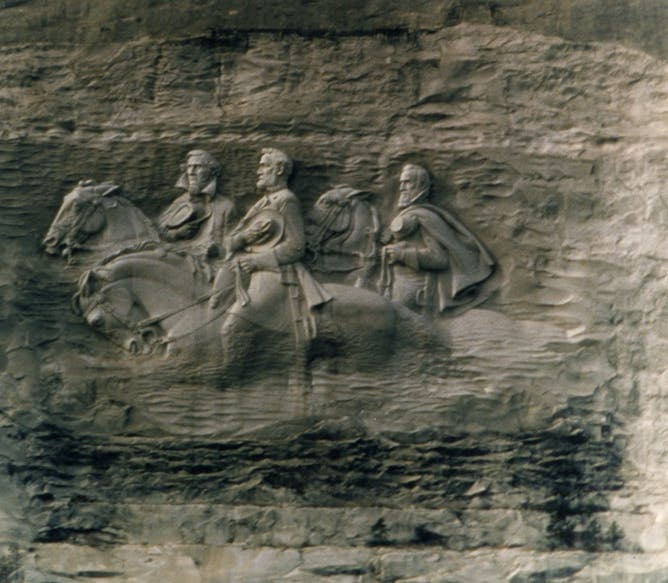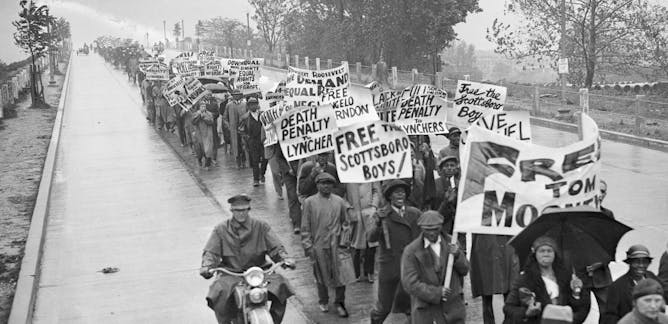|
Since the birth in 1827 of Freedom’s Journal, the nation’s first Black-owned newspaper, Black editors have told a different story of America than the one most of us have read about.
But over the years, their reporting and opinions documenting their country's shortcomings in achieving racial equality have been either lost, forgotten or overlooked by historians.
For the past several years, Donovan Schaefer and his research team at the University of Pennsylvania have reviewed Black newspapers going back to the 1870s. They have unearthed an invaluable resource in setting the record straight on what Black people saw and experienced throughout American history.
One such topic was the emergence of Confederate memorials and the myth of the Lost Cause at the turn of the century. In 1925, for instance, the Pittsburgh Courier called a Confederate carving in Georgia “a living monument of the cause to which white Southerners have dedicated their lives: human slavery and color selfishness.”
Fearless and bold, Black newspapers spoke truth to power at considerable risk — and their contributions to the nation’s history go far beyond their meager budgets and limited circulations.
Other stories for Black History Month:
|

Confederate leaders Robert E Lee, Stonewall Jackson and Jefferson Davis are depicted in this carving on Stone Mountain, Ga.
MPI/Getty Images
Donovan Schaefer, University of Pennsylvania
At the turn of the 20th century, Southern sympathizers started building monuments to Confederate leaders. Black newspaper editors saw these emblems clearly for what they stood for – a lost cause.
|

A mural dedicated to Du Bois and the Old Seventh Ward is painted on the corner of 6th and South streets in Philadelphia.
Paul Marotta/Getty Images
Elijah Anderson, Yale University
Over a century ago, white Philadelphia elites believed the city was going to the dogs – and they blamed poor Black inner-city residents instead of the racism that kept this group disenfranchised.
|
|
|

Ronald E. Hall, Michigan State University
Conservative politicians have launched attacks against the use of the word “woke.” If they knew the history of the word, they might stop wasting their time.
| |

Rodney Coates, Miami University
Though the Civil Rights Act of 1964 officially ended racial discrimination in public places, relics of the Jim Crow South still haunt modern memory.
|

Angela M. Nelson, Bowling Green State University
Norman Lear brought the first nuclear Black family to prime-time television in 1974.
| |

Minnita Daniel-Cox, University of Dayton
Paul Laurence Dunbar became the first Black writer to earn international acclaim through his poetry, essays and musical lyrics.
|
|
|